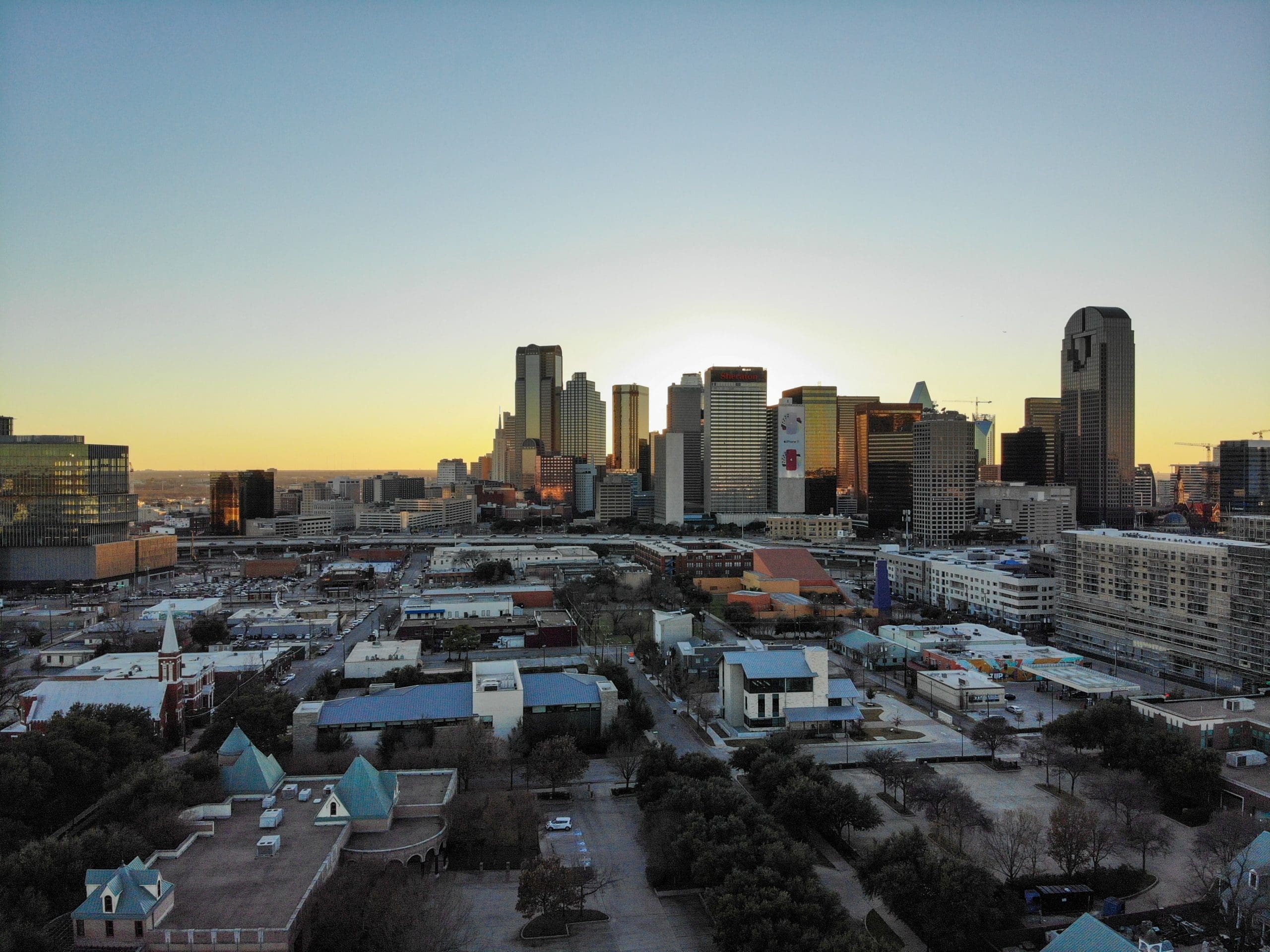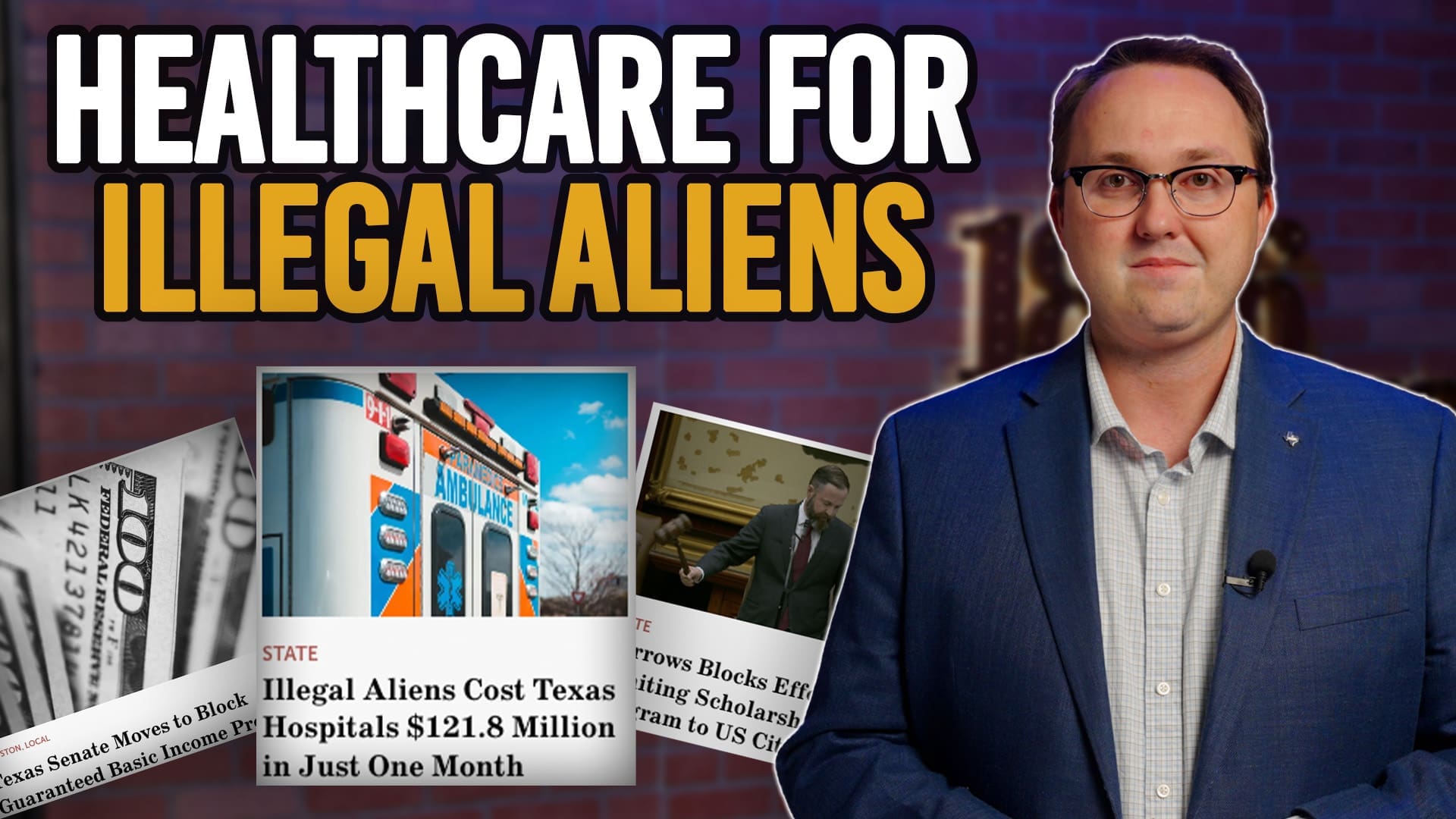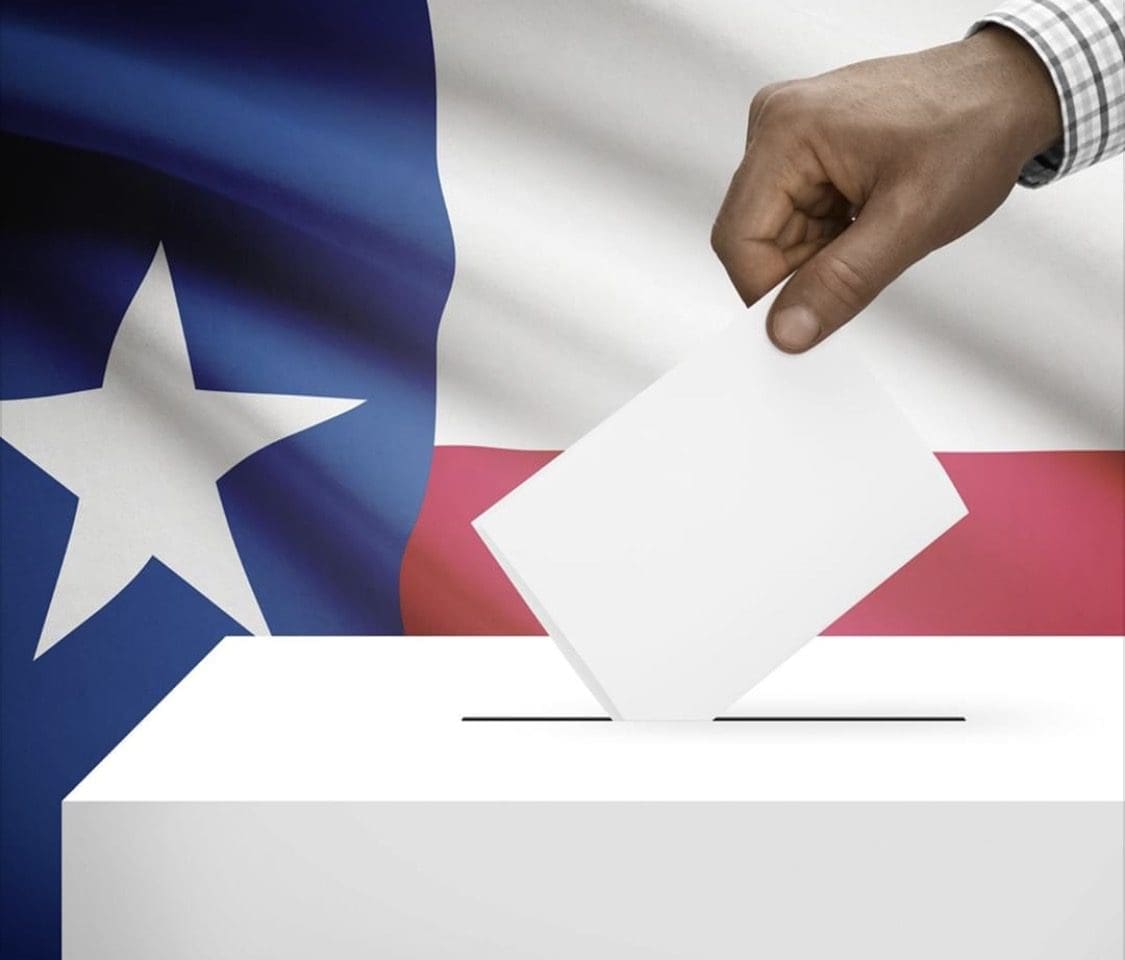On Saturday, Dallas City Council members who voted to cut police overtime and reduce the police ammunition supply last year—yet still sought the Dallas Police Association’s endorsement this election—will face the voters, who also have to decide if noncitizens should be allowed to redraw the city’s voting districts as the nation engages in redistricting.
“They ultimately decide whether to hold these city council members accountable for their votes and their actions,” Mayor Eric Johnson, who is not up for election this year, said in an interview regarding last year’s cut to police overtime—which he opposed. “The ballot box is a powerful tool.”
Maintaining Citizen Representation in Dallas
On February 10 of this year, 10 Dallas City Council members voted to put on the May 1 ballot two propositions that would give noncitizens more influence in city government.
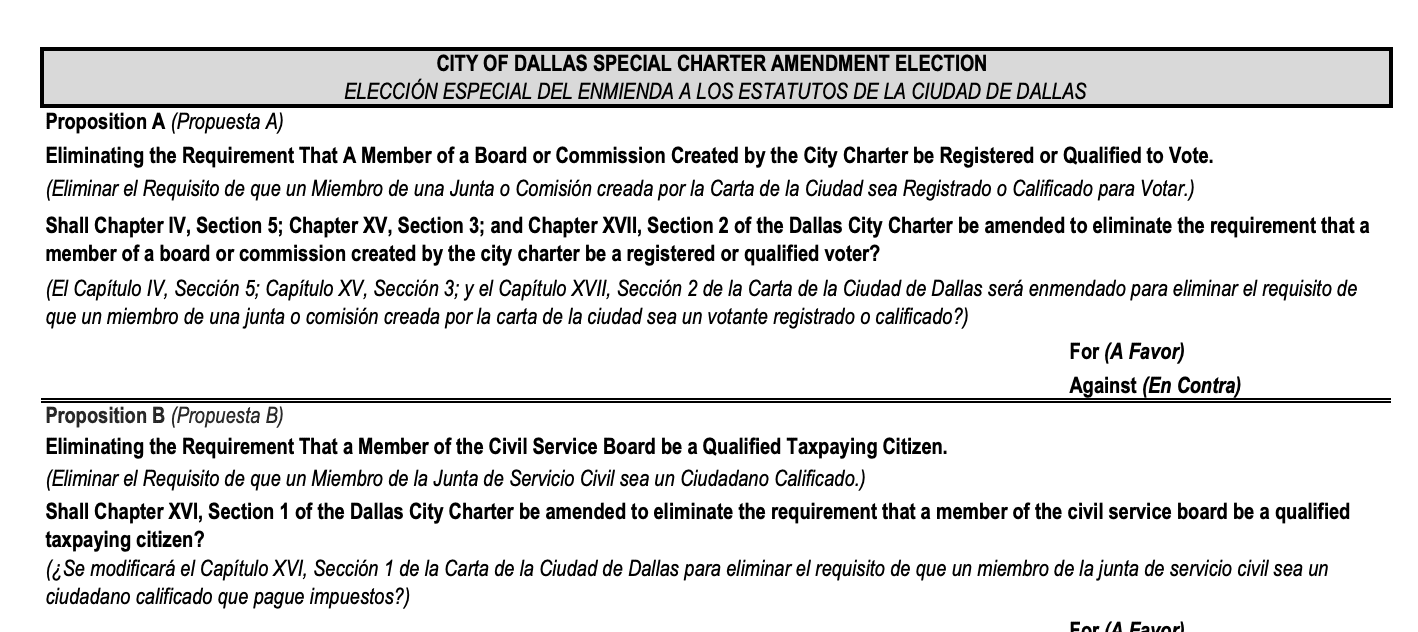
According to City Attorney Chris Caso, Proposition A would affect the city planning commission, the park board, and the redistricting commission (which redraws the city’s voting precincts).
In the February 10 meeting, Councilmember Cara Mendelsohn alluded this proposition would help someone Councilmember Jaime Resendez wants to put on the board.
Proposition B would remove the requirement that members of the Civil Service Board, which sets the minimum requirements for city employment, be a “qualified taxpaying citizen.”
Mayor Eric Johnson and Councilmembers Adam Medrano, Chad West, Omar Narvaez, Adam Bazaldua, Paula Blackmon, Tennell Atkins, Casey Thomas, Resendez and Mendelsohn voted to put this to the voters on May 1.
Police Overtime Cut and Ammunition
On September 24—after last summer’s protests-turned-riots, organized by controversial activist Dominique Alexander and his allies—11 city council members voted repeatedly to cut $7 million from police overtime.
Councilmember Adam Bazaldua helped lead the effort by first proposing it on September 3; the proposal was cosponsored by Councilmembers Adam Medrano, Paula Blackmon, Omar Narvaez, David Blewett, Chad West, and Tennell Atkins. Bazaldua’s original proposal would’ve spent most of the $7 million on things like bike lanes, solar power, the Bishop Arts Theatre, and miscellaneous expenses.
Alexander praised Bazaldua’s “defund” amendment.
At the time, Councilmember West told Texas Scorecard that the reason for his vote was to motivate management to not use overtime so often, alleging it is abused. Dallas Police Association President Mike Mata disagreed with West’s wording.
“Abuse, to me, means possibly illegal activity,” he countered last September. “I think we need to be more efficient.” Mata said he had spoken with West and that he “sees my point,” adding the Dallas Police had to deal with many days of protests at the time, as well as city council special projects and crime initiatives assigned to them.
Councilmembers Mendelsohn, Adam McGough, and Jennifer Gates voted against Bazaldua’s amendment. Mayor Johnson was absent, having left shortly after council defeated his attempt earlier that day to “defund the bureaucracy” with $6.5 million in salary cuts.
Councilmember Paula Blackmon also helped lead the overtime cut effort months earlier by sending a letter to City Manager T.C. Broadnax, asking him to “present options that reallocate public safety funding to equitable community funding” for council’s budget workshop that June.
After citizen’s expressed opposition, Bazaldua proposed another amendment, still cutting $7 million but using most of it to move 95 police from desk work to patrol by hiring an equal number of civilian personnel. It passed with only Johnson, McGough, Mendelsohn, and Gates voting against. The entire budget passed with outgoing Councilmembers Medrano and Kleinman joining Johnson, McGough, Mendelsohn, and Gates voting against.
“Only 16 positions have been civilianized, and we have lost a net of 55 officers, based on the most recent report I received from the city manager’s office,” Johnson told Texas Scorecard in March, adding he supports the move to civilianize but not by pulling funding from police overtime.
Later in December, as reports showed Dallas was set to have its highest number of murders in 16 years, Bazaldua voted against the police’s five-year ammunition contract and asked if there had been an audit to determine whether one round of ammunition would be sufficient for training, rather than the 50 rounds that are normally allocated. Narvaez asked if the money could be used for the police overtime budget instead.
Bazaldua, Narvaez, and Resendez also voted to have tear gas and rifle rounds removed from the contract. That motion failed 10-5.
Since then, Bazaldua, Blackmon, and Narvaez have publicly tried to reframe their position on the police. The Dallas Police Association confirmed they sought their endorsement for re-election this year and provided photographs of each council member coming to the DPA for an interview.
“Funny how six months ago, Bazaldua was pushing for a policy that would prevent public safety [political action committees] from endorsing council races, then turns around and, after marching in the street for defunding, sits for 45 minutes to get the endorsement,” Mike Mata, president of the Dallas Police Association, told Texas Scorecard. He provided a screenshot of Bazaldua stating his position on social media.
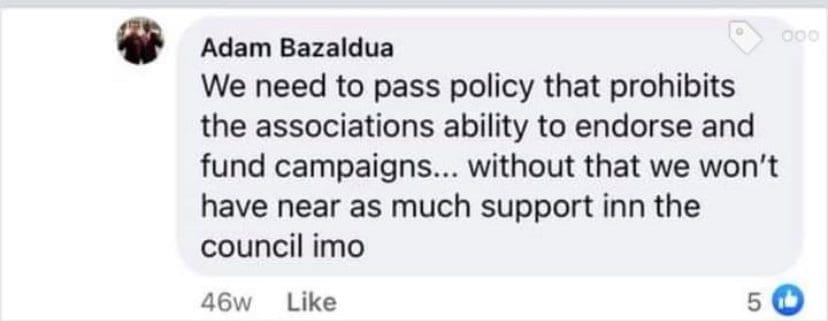
DPA endorsed none of those council members, and Narvaez was made to take down a sign last week claiming otherwise.
Bazaldua and Narvaez have been endorsed by the Greater Dallas Black Police Association, whose president is an ally of Dominique Alexander. Alexander’s organization, the Next Generation Action Network, has endorsed Resendez for re-election.
Blackmon has been telling voters police funding actually increased despite the police overtime cut, but Mendelsohn pointed out that happened because the full effects of city council’s 2019 vote to give a raise to public safety officers weren’t realized until “this past year.”
Mayor Johnson hopes there won’t be a repeat of council members proposing more police cuts in 2021’s budget discussions, but that it is up to the voters.
Dallas voters who participate in the traditionally low-turnout city elections will decide what to do regarding the council members who pushed the overtime cut and whether or not noncitizens will be allowed to redraw their city voting districts.
Candidates for city council districts this election may be found on the city website. Election Day is Saturday, May 1. Polls are open from 7 a.m. to 7 p.m.
